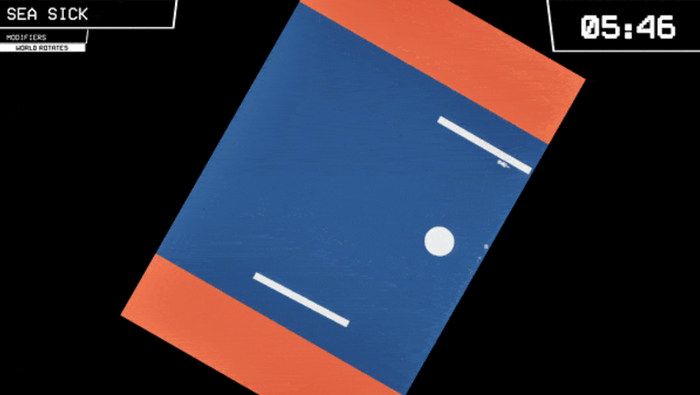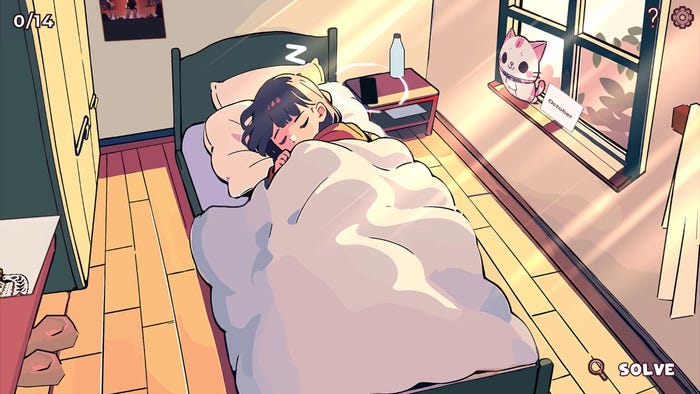This Game Will Self Destruct in Five Seconds: How Developers and Publishers are Harming Those Who Keep Them in Business.
This article addresses the controversy over Capcom’s limited game save functionality in Resident Evil: The Mercenaries 3D and the paradoxical realization that developers may be harming their primary consumer base in pursuit of impeding the used market.

The recent revelation that Resident Evil: Mercenaries 3D, a hotly anticipated 3DS games based on the lucrative Capcom franchise, contains a game save structure that does not allow the player to reset the game and rather makes the save permanent, has sent ripples of annoyance and outright derision throughout the gaming community, all leveled squarely at Capcom.
I recently wrote two blogs dealing with digital distribution and its inherent value along with the changing topography of ownership as it relates to the evolving software market and I regret my second blog was published before this recent development, as this situation starkly illustrates how some within the industry are beginning to become reckless in their collective pursuit of maximizing profits by attempting to marginalize the used game market. What is interesting is that this development demonstrates that the issues of consumer ownership and fair use that should conceivably govern all software purchases are being challenged not merely on a digital front but also on physical media, the last bastion of consumer protection in an increasingly digital age. In an effort to stem the growing revenue stream generated by the secondary market, developers and publishers are pursuing various means of limiting the transfer of ownership in such a restrictive manner that even the initial purchaser is potentially harmed in the process.
Move Over Piracy: The Secondary Gaming Market is Now Enemy One
The used game market has become a recent focal point of contention by developers and publishers who claim it is a siphon that consumes millions of dollars of revenue that should rightfully go to those who make and manufacture the software. As the used game market has continued to thrive and expand exponentially, various large retailers, including Best Buy, Target and Wal-Mart, have begun their own trade-in programs similar to GameStop. The industry has responded with a smattering of strategies to combat this growth, including the controversial online pass system, which requires anyone purchasing certain used games with online functionality to pay an additional fee to access the online content. This effectively adds ten dollars to the selling price of many used games while simultaneously lowering the trade-in and re-sale value for those consumers looking to offload these particular titles.
Proponents of this model claim this is a fair and reasonable way to acquire a piece of the secondary market previously denied them while many consumers have decried the move as a petty, penny-pinching tactic designed to deter second hand sales altogether.
While it is entirely understandable that that both developers and publishers feel omitted from a secondary marketplace that enjoys a copious revenue stream that cuts them out almost entirely, the industry must be cautious when implementing any type of model that could potentially weaken the ownership rights and expectations of the primary buyer. The rise of digital media has facilitated a new toolset which enables publishers to more firmly regulate their wares but these short-term solutions may very well create a festering, long-term resentment in customers who have purchased software new and are being shorted in the wake of these new “protections”, many of which are merely extensions of anti-piracy measures that already suffer from a shaky, uneven history with consumers.
Thank You for Your Business…Now **** Off.
As it stands now, the physical media landscape has changed radically, with software titles on PC often featuring DRM that many consumers consider intrusive and unfair. The irony is that while companies using such models often tout the need for anti-piracy measures, most of these strategies only serve to impede the loyal and honest customer who has legitimately purchased the game while the pirate goes on playing their free copy, all the while mocking the stalwart consumer and their limited legal wares.
This recent play by Capcom however, is a more bold and radical approach entirely. Not only is the company traversing into restrictions typically reserved for larger games on dedicated consoles and PC’s, they have employed a model that uses a hardwired solution that not only acts as a deterrent for used game sales but simultaneously punishes the primary purchaser with a ridiculously limited save functionality that is logistically indefensible.
Essentially, Capcom has pissed off everyone.
The ability to start a new game save or delete an existing save has been a feature found in virtually all applicable software since the days of the NES. To be sure there are always exceptions and some developers have opted to implement game save structures that challenge the player into considering the entire paradigm in a different light, but RE Mercenaries 3D takes all choice away and forces your save to be etched in the proverbial stone so that nobody will ever be able to start an entirely new game on the cartridge.
That isn’t progressivism but rather a form of software fascism. Instead of using our ever-expanding technology to serve the consumer, Capcom has just taken a step into a much darker and restrictive place by using technology to limit consumer choice, a disconcerting decision given the company’s lengthy and storied history in this medium.
Capcom’s public response to the outcry has been typically aloof and delivered in calculated corporate-speak; a vague statement on the nature of the game supporting such a feature (or lack thereof) while emphatically denying this was a move to limit the game’s appeal in the secondary market. To the logical mind, none of this makes much sense as a game save is something that need not be deleted unless the gamer decides to do so and certainly doesn’t require a permanent “solution”. When looking at the issue in any rationale light, there really is no intelligent reason to omit such a basic function unless doing so limits the appeal of the product on the secondary market, which is clearly the case here.
An Ugly Trend
What is truly most unfortunate about this entire fiasco is that it is merely another indignity levied upon the legitimate consumer who has become collateral damage in this war between the primary and secondary markets. Just as it occurred with anti-piracy measures, the consumer who buys the game firsthand and for the premium retail price becomes enmeshed and suffocated by draconian measures that strip them of their rightful entitlements, punishing them for buying the product honestly. The irony is that the only outcome assured by such tactics will be convincing people that publishers and developers are greedy, nickel-and-diming shysters who deserve to have their software pirated.
Just consider how many people will use this recent miscalculation by Capcom to justify downloading a pirated version of RE Mercenaries that will inevitably be dumped online at some point in the near future.
Ultimately, no good can come from these types of practices and the price for such mistakes is often measured in public trust and respect, a currency that far exceeds the value of the immediate monetary recompense sought by those employing such faulty models. The videogames industry - specifically those who think pettiness and cheap, lowball tactics will facilitate a more robust bottom line – need to consider the failures and later successes of the music and movie industries respectively so that they might decipher from these important histories lessons in humility and the importance of not punishing your loyal customers but rather treating them with a modicum of respect and appreciation.
About the Author(s)
You May Also Like








